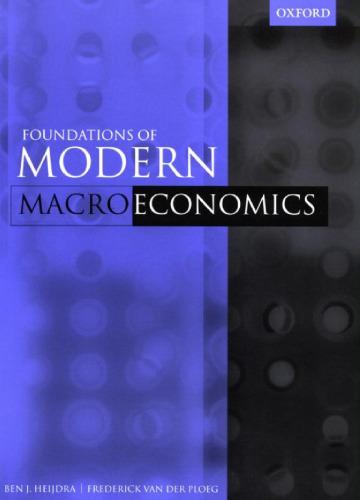spending: so that: (1 + e + - + r)ogN gc - gN = > 0, [1
Question:
spending:
so that:
(1 + e + - + r)ogN gc - gN = > 0,
[1 + 0 + (C) 2 ] (1 + 0 + - + 02
[1 + 0 + (r) 2 i -OgN - + r)C0A
[1 + 0 + (01(1 + 0 + 2)- + 02 From (11.65) we can conclude that gN is larger, and gN is smaller, in the asymmetric than under the symmetric case (for which = > 0)—compare (11.65)-(11.66)
and (11.60). Furthermore, in view of (11.65)-(11.66) and (11.67)-(11.68) we observe that gN < gc and gN > This means that, in the absence of cooperation, the world interest rate is too high, the dollar is too strong, and there is high unemployment in Europe due to the economic policy pursued by the US. This result is intuitive since fiscal policy is a beggar-thy-neighbour policy for the US, which consequently spends too much in the absence of coordination. Under cooperation this external gC-gN = (11.65) (11.66) (11.67) (11.68) The Foundation of Modern Macroeconomics effect is internalized. Similarly, European fiscal policy is a locomotive policy, which consequently spends too little. 11.3 Forward-looking Behaviour in International Financial Markets
Step by Step Answer:

Foundations Of Modern Macroeconomics
ISBN: 9781264857937
1st Edition
Authors: Ben J. Heijdra, Frederick Van Der Ploeg






